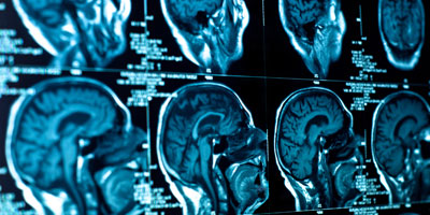Earlier distinction between Alzheimer's disease and frontotemporal dementia

In the white matter of the brain in particular, large differences can be measured between the brains of people with Alzheimer's disease and those with the behavioural variant frontotemporal dementia. Neuropsychologist Christiane Möller used advanced image analysis techniques on MRI brain scans from dementia patients in an early stage of the disease. She will defend her doctoral research on 1 May at the VU University Medical Centre. Her research was funded by the NWO's National Initiative Brain & Cognition.
Alzheimer's disease and the behavioural variant of frontotemporal dementia (FTD) are the two most commonly occurring types of dementia at a young age. Medical specialists still find it difficult to make a distinction between the two types of disease at an early stage of the illness. Using existing imaging techniques the difference is often not visible to the naked eye on scans.
Möller used advanced analysis methods that can measure brain damage not yet visible to the human eye. "At a group level the diseases were found to exhibit large differences in the white matter of the brain in particular. In frontotemporal dementia there is a lot of damage to the white matter of the brain in the foremost parts of the brain, whereas in the brains of people with Alzheimer's disease no damage could be measured compared with FTD. A combination of different analysis methods made the distinction even clearer still."
The aim of the research was to detect changes in the brain as early as possible and to determine if there were differences in the brain between the two types of dementia. "For drug development in particular, a good diagnosis is a prerequisite", says Möller. The VU University Medical Center carried out the study together with Leiden University Medical Center and the Erasmus Medical Center in Rotterdam. This research falls under the programme 'Brain & Cognition: societal innovation' and is funded by the National Initiative Brain & Cognition, a unit of NWO.
In the Netherlands there are already about 250,000 people who suffer from dementia and it is expected that by 2040 this number will have increased to half a million people. Knowledge about the cause of dementia makes it possible to develop very specific therapies so that the disease can be cured.



















